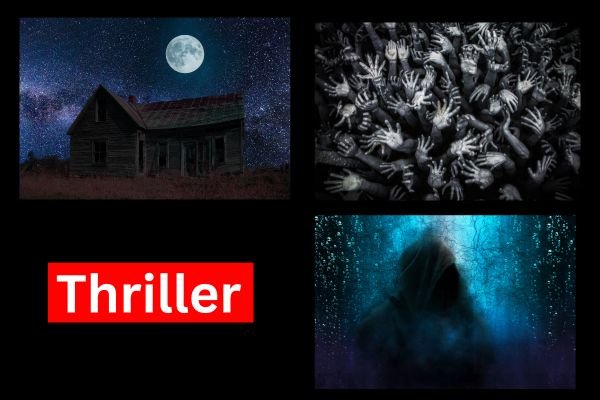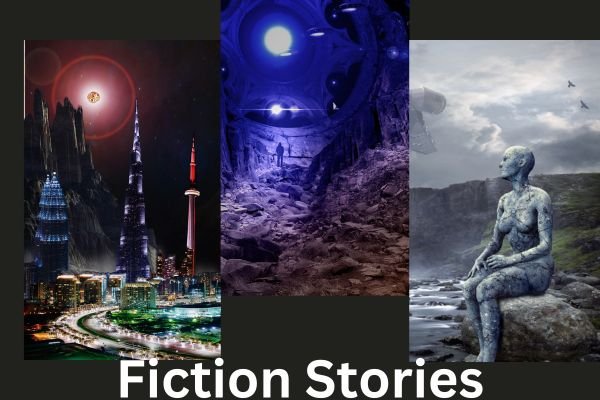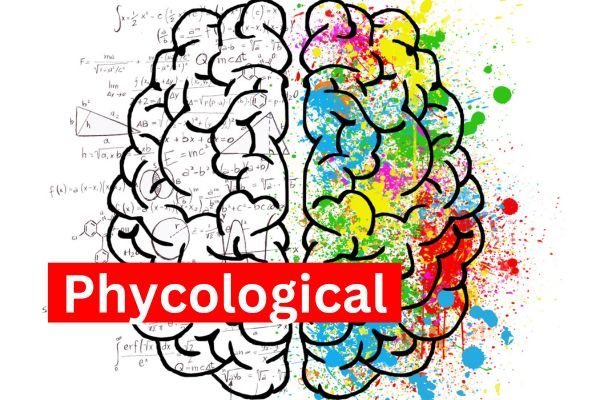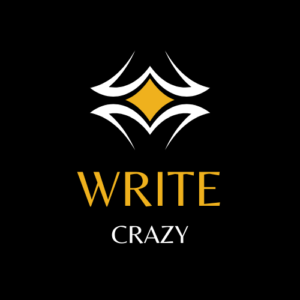Understanding the diverse types of novels is paramount for both readers and writers alike, shaping our preferences and honing our craft. Embarking on the exploration of novels feels akin to setting sail on a literary odyssey, each genre offering us a unique journey.
The spectrum of novel genres is as expansive as the imagination itself, from spine-tingling thrillers to heartwarming romances, and fantastical realms to gritty historical narratives. In this ultimate writing guide, we’ll be delving into the intricacies of various novel types, dissecting their defining features, and unraveling their allure.
Join us on this exploration as we navigate through the realms of literature and explore the different types of novels.
What Are Novels:
Novels are long fictional narratives that explore characters, plots, and themes through prose storytelling. They typically involve a sequential unfolding of events, often focusing on the development of characters and the exploration of their inner lives and relationships. Novels can span a wide range of genres, including romance, mystery, science fiction, fantasy, historical fiction, and more. They offer readers a rich and immersive experience, allowing them to escape into different worlds, perspectives, and experiences.
Why Understanding the Type Of Novel Is Important?
Understanding the type of novel you’re reading or writing is important for several reasons:
Audience Expectations: Different genres have different conventions and tropes. Understanding the type of novel helps both authors and readers know what to expect. For instance, readers of mystery novels anticipate a puzzle to solve, while readers of romance novels expect a focus on relationships and emotional development.
Targeting the Right Audience: If you’re an author, knowing the type of novel you’re writing helps you target the right audience. This includes understanding the demographic that typically reads that genre, as well as the marketing strategies that are effective for reaching those readers.
Crafting Effective Stories: Each type of novel has its own storytelling conventions and narrative structures. Understanding these conventions allows authors to craft stories that resonate with readers of that genre. For example, a fantasy novel might include elements like world-building and magical systems, while a thriller might focus on suspense and pacing.
Engagement and Enjoyment: Readers often have preferences for certain types of novels based on their interests and reading habits. Understanding the type of novel helps readers find books that they are likely to enjoy and engage with, leading to a more satisfying reading experience.
Critical Analysis: When analyzing novels, whether for academic purposes or personal enjoyment, understanding the type of novel can provide insights into themes, character development, and narrative techniques. It allows readers to contextualize the work within its genre and literary tradition, leading to a deeper appreciation and understanding of the text.
Different Types Of Novels:
Thriller:

As a thriller writer, you’re the architect of suspense, crafting intricate plots and compelling characters that grip readers from the start. With every word, you maintain a relentless pace, weaving twists and turns to keep them guessing. Characters are flawed yet relatable, driving the narrative with their motivations and struggles. You expertly balance revelation and concealment, knowing just when to reveal key information to heighten tension. Whether it’s a high-stakes heist or a race against time, your goal is to deliver an electrifying experience that keeps readers turning pages late into the night.
Romance:
In this type of novel writing, you’re a master of matters of the heart, spinning tales that sweep readers off their feet and into the throes of passion. Your stories are filled with longing glances, stolen kisses, and the promise of happily ever after. You create characters whose chemistry is palpable, their journey to love fraught with obstacles and emotional turmoil. Whether it’s a whirlwind romance or a slow-burning love affair, you know how to tug at the heartstrings and leave readers sighing with satisfaction. In a romance novel, you’re the ultimate matchmaker, bringing love to life on the page.
Fantasy:
In fantasy writing, you’re a maestro of the imagination, conjuring worlds where magic reigns supreme and adventure awaits around every corner. From epic quests to battles between good and evil, your stories transport readers to realms where anything is possible. You populate these worlds with mythical creatures, noble heroes, and cunning villains, each with their own role to play in the grand tapestry of your narrative. With vivid descriptions and richly drawn landscapes, you invite readers to lose themselves in realms where dreams come to life and the impossible becomes reality. In a fantasy novel, you’re the architect of wonder, crafting tales that ignite the imagination and transport readers to places beyond their wildest dreams.
Science Fiction:
As a science fiction writer, you paint dazzling portraits of worlds yet to be discovered, where technology and humanity collide in thrilling and unexpected ways. Whether it’s exploring distant galaxies, grappling with the ethical implications of artificial intelligence, or envisioning the consequences of environmental catastrophe, you push the boundaries of imagination and possibility. In a science fiction novel, you’re a pioneer of the mind, boldly venturing into the unknown and bringing back tales that expand our understanding of the universe and ourselves.
Historical Fiction:
As a historical fiction writer, you’re a time traveler, journeying back through the annals of history to breathe life into the past. With meticulous research and vivid storytelling, you recreate bygone eras with authenticity and detail. From the grandeur of ancient civilizations to the tumult of world wars, you immerse readers in the sights, sounds, and emotions of a bygone time. Through the lives of your characters, you explore universal themes of love, sacrifice, and resilience, illuminating the human experience across the ages. In a historical fiction novel, you’re a custodian of memory, preserving the stories of the past for generations yet to come.
Mystery:
A mystery writer, you’re a maestro of suspense, orchestrating intricate puzzles and enigmatic plots that keep readers guessing until the very end. Each cryptic clue and cunning twist leads them through a labyrinth of secrets and suspense, challenging them to unravel the mystery alongside their protagonists. Whether it’s a classic whodunit or a psychological thriller, readers remain on the edge of their seats, tantalized by the promise of a solution just out of reach.
Fiction:
Fiction writing is most common among all different types of novels. You craft stories that resonate with the human experience, exploring themes of love, loss, hope, and redemption. Through your prose, you invite readers to step into the shoes of your characters, to see the world through their eyes and feel the beat of their hearts. Whether it’s a contemporary drama, a historical epic, or a whimsical tale of fantasy, you use the power of storytelling to illuminate the complexities of life and the beauty of the human spirit. In a fiction novel, you’re a storyteller, weaving threads of imagination into the fabric of reality, creating a tapestry that is both familiar and fantastical.

Children’s Literature:
In children’s literature, you’re a storyteller who paints worlds of wonder and imagination, where whimsical characters embark on magical adventures. Through vibrant prose and enchanting illustrations, you ignite young minds with tales of bravery, friendship, and discovery. Whether it’s a journey to a faraway land or a lesson in empathy and kindness, you captivate young readers with stories that spark their curiosity and inspire their imaginations. In children’s literature, you’re a guide, leading young hearts on unforgettable journeys through the power of storytelling.
Detective:
As a writer of detective fiction, your role is to craft captivating mysteries that draw readers into a world of intrigue. Plot intricacies, plant clues, and red herrings strategically, keeping readers engaged in the chase for truth. Thorough research ensures authenticity in police procedures and forensic science. Characters, especially the detective, must be compelling and complex. Your storytelling prowess weaves suspense and action, hooking readers until the final revelation. With each narrative, you lead readers through a maze of clues, making them active participants in the unraveling mystery.
Fantasy:
In fantasy writing, you’re an architect of realms, conjuring worlds where magic dances with reality. Your task is to craft immersive landscapes, populated by heroes, villains, and mythical beings. Each story is a journey into the unknown, blending elements of adventure, mystery, and wonder. Through vivid descriptions and intricate world-building, you transport readers to places where anything is possible. Your characters must resonate with readers, their struggles and triumphs reflecting universal truths. As a fantasy writer, you wield the power of imagination to create tales that captivate and inspire.
Gothic:
This is one of the latest among the different types of novels. In gothic writing, you’re a weaver of dark, atmospheric tales that linger in the shadows of the mind. Your task is to create settings shrouded in mystery and dread, where ancient castles and decaying mansions echo with secrets. Characters navigate a landscape of psychological turmoil, haunted by ghosts of the past and tormented by their own inner demons. Through rich prose and vivid imagery, you evoke a sense of unease and foreboding, drawing readers into a world where the line between reality and nightmare blurs. As a gothic writer, you delve into the depths of human darkness, exploring themes of madness, obsession, and the macabre with chilling precision.
Horror:
In horror writing, you’re a maestro of fear, orchestrating tales that send shivers down readers’ spines and haunt their nightmares. Your task is to create an atmosphere of dread and tension, where the unknown lurks in the shadows, and every creaking floorboard is a harbinger of terror. Characters confront their deepest fears, facing off against supernatural entities, deranged killers, and the darkest aspects of human nature. Through visceral descriptions and relentless pacing, you plunge readers into a world of escalating horror, where the line between reality and nightmare blurs.
Political:
In political writing, you’re a navigator of power dynamics and ideological battlegrounds, weaving narratives that delve into the complex realm of governance, influence, and societal change. Your task is to dissect the intricacies of political systems, exploring the motivations and machinations of politicians, activists, and citizens alike. Through sharp dialogue and compelling plotlines, you tackle pressing issues and controversial topics, shedding light on the often murky intersections of politics and morality. Characters navigate a landscape of ambition, corruption, and moral ambiguity, their decisions shaping the course of nations and the lives of millions.
Psychological:
In psychological writing, you’re a sculptor of the mind, crafting narratives that delve into the complexities of human behavior and the labyrinth of the psyche. Your task is to explore the depths of consciousness, unraveling the intricacies of emotions, traumas, and motivations. Through subtle cues and intricate plot twists, you lead readers on a journey into the inner workings of your characters’ minds, blurring the line between reality and perception. Themes of identity, memory, and perception abound as characters grapple with their own inner demons and the forces that shape their reality.

Conclusion:
In conclusion, the world of novels is rich and varied, offering something for every reader’s taste and every writer’s ambition. Understanding the different types of novels not only expands our literary horizons but also deepens our appreciation for the art of storytelling.
Whether you’re drawn to the heart-pounding suspense of a thriller, the enchanting romance of a love story, or the mind-bending twists of a psychological thriller, there’s a novel waiting to sweep you away on a captivating adventure. So, embrace the diversity of the written word, and embark on a journey through the countless worlds that novels have to offer.
FAQs:
What are the most common types of novels?
The most common types of novels include thriller, romance, fantasy, mystery, science fiction, historical fiction, and literary fiction.
Why understanding the type of novel is important?
Understanding the type of novel is important because it helps both readers and writers set expectations, target the right audience, craft effective stories, and enhance engagement and enjoyment.
What is the world’s first novel?
The world’s first novel is widely considered to be “The Tale of Genji,” written by Murasaki Shikibu in Japan during the early 11th century.
